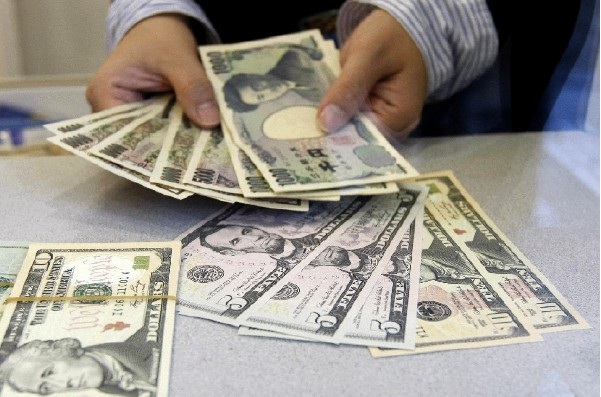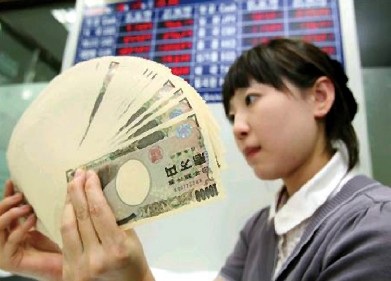Is it time to join the investment rally?
.jpg)
After years of economic turbulence and stock market underperformance, Japanese equities ended 2012 on a high note, after a late year rally which some analysts say will continue well into 2013. Since the start of the country’s rise to economic superstardom in the 1960 and 70s, the Japanese economy has been one of the great paradoxes of our time. It is a nation which is responsible for producing some of the world’s most sought after exports in terms of automobiles, electronics and chemical products. It is the world’s third largest economy and per capita is one of the wealthiest, most innovative nations in history. Yet for all its economic qualities, the Japanese stock market has, for the most part, been a gloomy setting in recent years. But following the election of a new government and the recent share price revival; is there some light at the end of the tunnel? This month we look at the pros and cons of investing in the Japanese equities.
.jpg) The Pros
The ProsPlenty of opportunities: Since the Fukushima disaster of 2011, many good quality Japanese stocks have shed value and now have share prices which grossly under represent the company’s intrinsic long term worth. Martin Hutchinson, Global Investment Strategist at Money Morning, recently pointed out that “the Japanese stock market is still trading at less than a third of its 1990 peak”. There is no doubt that if investors do their homework there are plenty of golden opportunities nestled in the Nikkei index.
New government, new economy: Japan’s Liberal Democratic Party recently won an outright majority in the country’s general election. Although nobody knows exactly what this means for the Japanese economy in the long run, it seems that the monetary easing and big stimulus spending plans will be rolled out in 2013. So far the speculation alone has lead to a stocks market rally and a much needed weakening of the yen. If things go according to plan, 2013 could be a glorious year for equity investors.
Stability and resilience of Japanese society: Long term investors in Japan can take a great deal of comfort from the fact that the country’s people are resilient, hard working and orientated towards innovation and excellence. History has shown that hard times strengthen the Japanese resolve to work harder, take decisive actions and find solutions. This chart illustrates the rapid turnaround of Japanese GDP growth following the Kobe earthquake in 1995: Chart by Business Insider & Societe Generale
Exporting excellence: If there is one thing that characterises the Japanese economy, it is the world class exports which will continue to lead the way within their sectors for many years to come. Think about Toyota, Honda, Sony, Hitachi and all the other Japanese products that are well established household names. Despite the fact that exports on the whole have been in decline for some time, there is little doubt that consumer appetite, particularly from the emerging markets, will continue to drive the Japanese economy going forward. The recent weakening of the yen is certainly very encouraging for export sector investors.
.jpg) The Cons
The ConsDebt, debt and more debt: However optimistic one is about Japan’s potential for future economic growth, it is impossible to overlook the country’s colossal amount of debt. Currently Japan’s public debt to GDP ratio is around a staggering 230%. Even if the new government does manage to reduce the current levels, paying off the debt will undoubtedly take a significant amount of productivity out of the economy and some analysts warn, may even lead to a severe recession.
Demographic despair: It is often said that favourable demographics is an essential ingredient for a country to have fantastic growth and investment potential. Comparative to other Asian nations Japan’s population is aging very rapidly. To make matters worse, birth rates are low and the number of young adults who will be able to drive future economic growth is relatively small.
Exposure to a weak global economy: Japan’s manufacturing and financial sectors are heavily exposed to global markets. The ongoing euro zone crisis and the weak economic outlook in the U.S. will continue to threaten Japanese companies for the foreseeable future. And whilst demand from emerging markets is somewhat softening the blow, many of these economies are starting to show signs of a serious slowdown. The worst could be yet to come in terms of weakening global demand.
 Increasing international competition
Increasing international competition: The economic rise of China, India, Brazil, South Korea, Taiwan, Indonesia and other emerging nations presents a double edged sword for the Japanese economy. On the one hand a new consumer base is being created for the country’s products, and new opportunities for internal and external investment are arising. However, their economic rise means that Japan will face increased competition from countries with a larger and cheaper workforce, cheaper manufacturing capabilities and a greater supply of natural resources.
Final thoughts
Assessing the risks of investing in Japanese stocks, bonds and other financial assets is a complex and tricky thing to get right. It is tempting for investors to jump on the current band wagon which seems to be gathering momentum. If the new government manage to pull off the delicate balancing act of repaying some of the country’s debt, whilst stimulating the stagnant economy, investors could be looking at big returns over the next few years. It is important however, to be mindful of the very real risks that are involved when investing in Japanese assets, particularly shares in companies with a lot of exposure to Europe.

So what is the best investment strategy with regards to Japan in 2013? The answer may be to obtain a mild exposure to the Japanese stock market, whilst maintaining a major portfolio stake in solid assets elsewhere in the world. An example of a fund which allows access to good Japanese small caps is the SPDR Russell/Nomura Japan Smaller Companies Fund. In terms of individual stock picks, the Orix Corporation is probably one of the best players on the market right now, due to its dominant position at the forefront of Asian investment banking. And for investors who are looking for broader exposure to the Japanese stock market, ETFs such as the Wisdom Tree Japan Total Dividend Fund and the MAXIS Nikkei 225 Index Fund could be the best options.
by Josh Cooper